Penang-born chef Mano Thevar on how his heritage flavours the cuisine at his two-Michelin-starred restaurant in Singapore
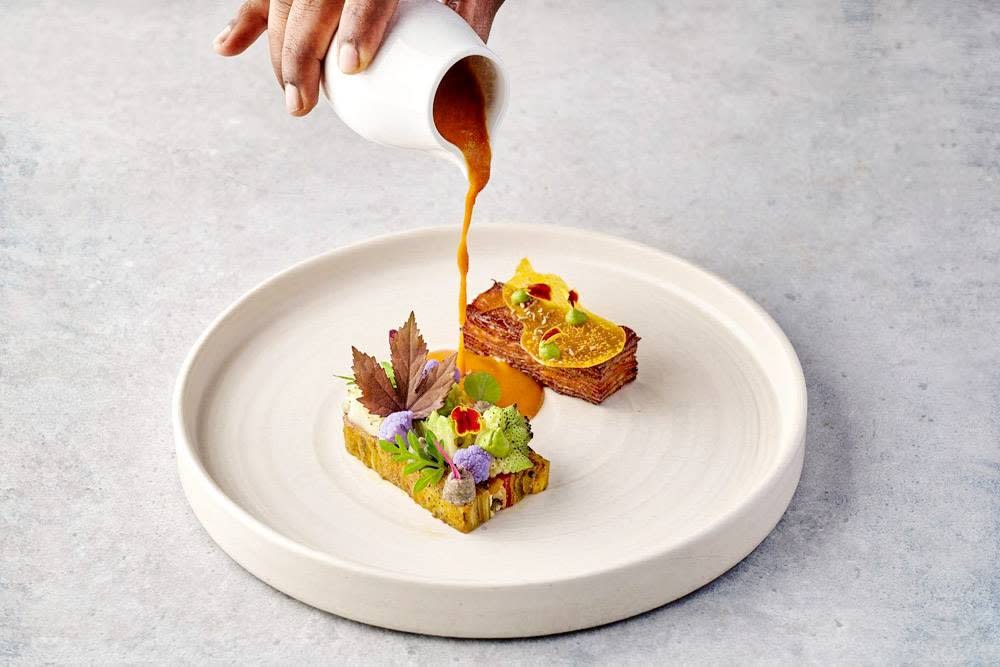
SINGAPORE, July 26 — There is a delicacy to this dish that beguiles the senses — the layers of mille-feuille, the warm aromas of the butternut squash, the slow pouring of the amber-gold sauce.
You’d imagine you’re dining at a classic French restaurant, and in the techniques employed, at least, you’d be at least half right.
But the ingredients and cuisine showcased here hails not from Europe but the Indian subcontinent: the mille-feuille features poriyal, a traditional South Indian vegetable stir-fry; the sauce isn’t a rich brown demi-glace but a lighter, more piquant tomato sambar, typically a luxurious pairing of lentils and tamarind broth.
Adorned with edible flowers and microgreens, the petals and leaves forming a tiny garden to please even the most cynical of visions, this Poriyal Mille-Feuille, Butternut Squash and Tomato Sambar is exactly the sort of refined offering you’d expect from a Michelin-starred restaurant.
Make that two Michelin stars.
Located along Keong Saik Road in Singapore, Thevar has recently been awarded its second Michelin star in the 2022 edition of the guide.
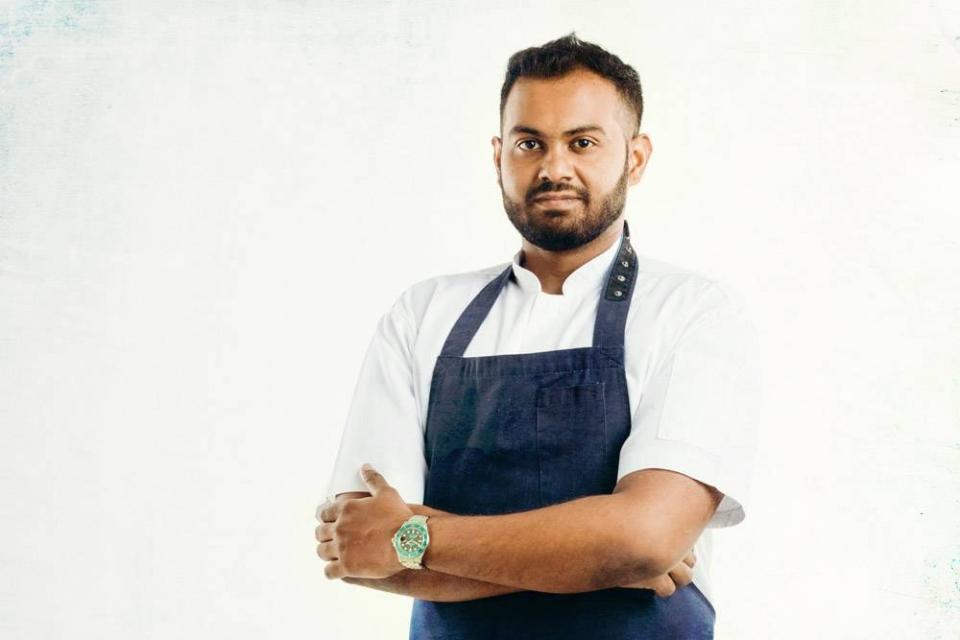
Penang-born Chef Mano Thevar has won a second Michelin star for his contemporary-classic Indian restaurant, Thevar.
The restaurant, which showcases classic South Indian cuisine with contemporary flair, had won its first star only last year — a rising star in the regional fine dining scene, clearly.
Thevar is the eponymous restaurant headed by Chef Manogren Murugan Thevar or Chef Mano as he’s affectionately known.
The Penang-born chef believes in reinterpreting South Indian cuisine by pairing fresh local produce such as bunga kantan (ginger flower) with Indian spices, rather than rigidly trying to serve authentic Indian fare.
Chef Mano recalls, "Growing up, I was never the studious type of person. I feel that Penang is known as the capital of delicious food, and growing up in Penang I have always been interested in food and different flavour combinations.”
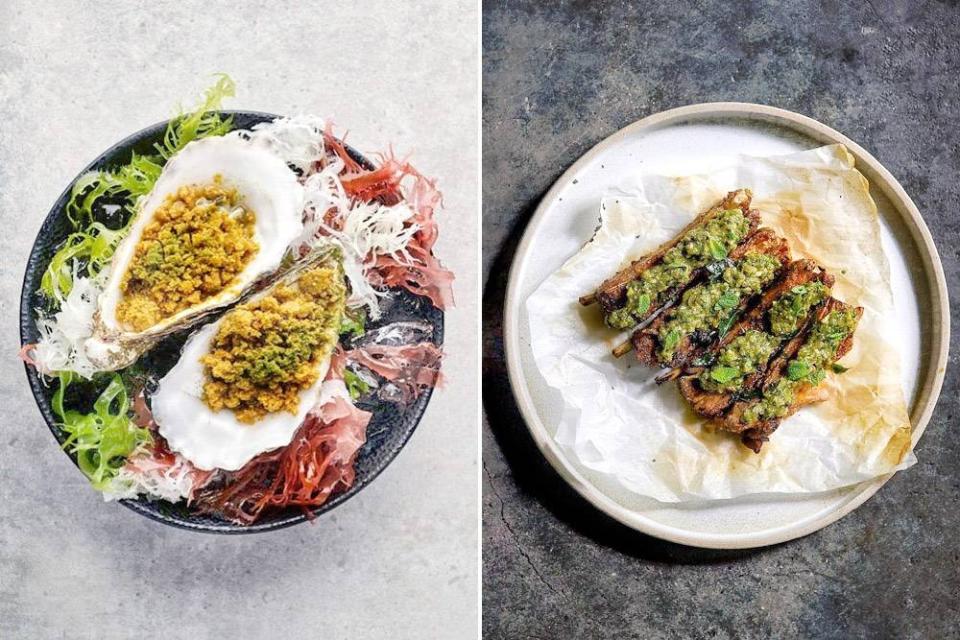
Irish Oyster Rassam Granita (left). Cumin and Coriander Lamb Ribs (right).
There’s no better candidate for that than his Irish Oyster Rassam Granita; the spicy South Indian soup transformed into icy granita, which perfectly, if surprisingly, compliments a fresh chilled oyster.
Of course, it’s not all drastic reinventions: there is something of the comfort food feel about Thevar’s Cumin and Coriander Lamb Ribs; it’s something you’d recognise or at least your taste buds would.
Same with the restaurant’s signature Chettinad Chicken Roti. The Chettiars or merchant bankers of yesteryear were traders in spices and this is reflected in this well-seasoned dish.
Folding the roti vertically to resemble tacos is a nod to modernity, perhaps, but also makes it a dignified finger food.
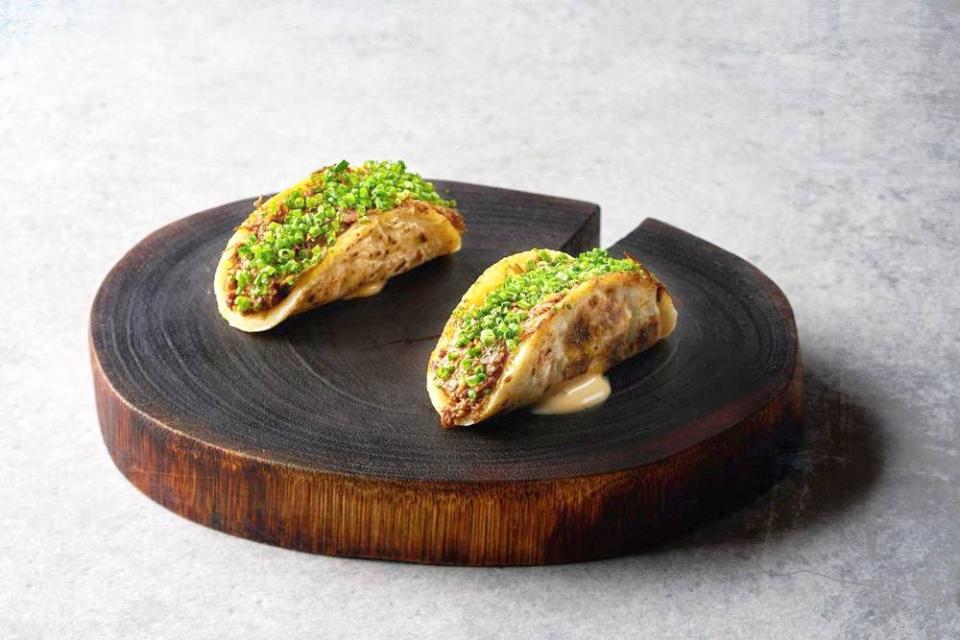
Chettinad Chicken Roti.
Chef Mano shares, "Ever since I was young, it has always been a dream for me to work as a chef and someday run my own kitchen. Penang is a multicultural environment with a lot of flavours to offer and I used to play around with different combinations whenever I could when I was working in different kitchens.”
These experiences have influenced some of his dishes such as his Iberico Crispy Pork Wrapped in Betel Leaf, where the famous Spanish delicacy is rendered almost siew yoke style and instead of a crunchy talo (Spanish flatbread), a peppery-tasting daun sirih is used to enfold the meat.
Sometimes it’s about elevating a humble dish. The popular street snack, kachoori, is already elegant in its simplicity — a ball of dough filled with dal and spices that has been deep fried. Chef Mano deepens the complexity with prawn masala, for a most sumptuous mouthful.
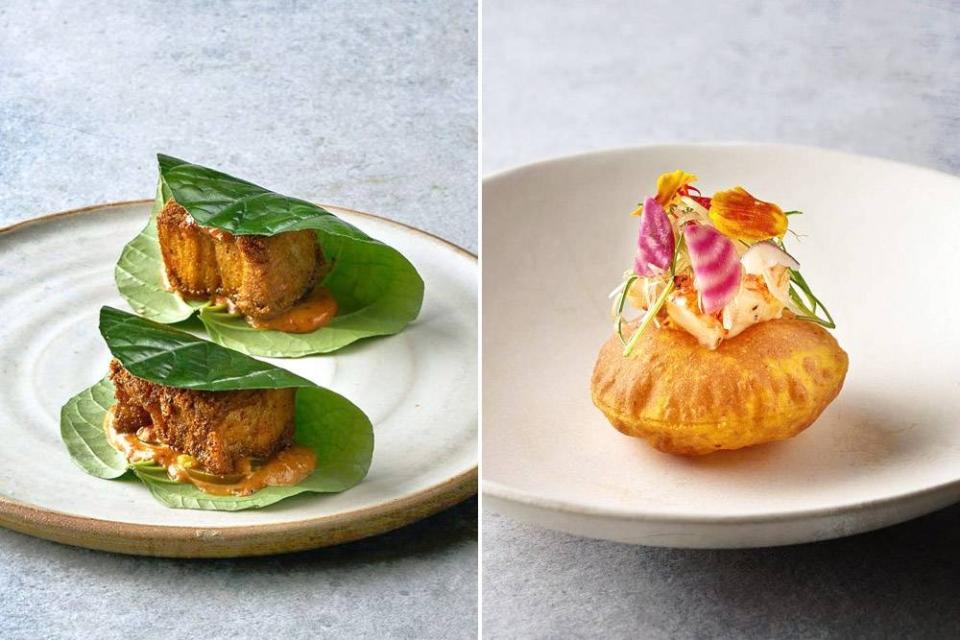
Iberico Crispy Pork Wrapped in Betel Leaf (left). Masala Prawn Kachoori (right).
Thevar is designed for communal dining; during a renovation, Chef Mano made sure that they brought in larger tables to encourage sharing of dishes.
The Chef’s Table, a relatively recent addition, allows a front row seat to specially arranged menus.
Course by course, it becomes clear to the observant diner that Chef Mano’s own heritage and knowledge of the South Indian cuisine he grew up with colours — and flavours — every aspect of his cooking.
He explains, "My driving force comes from my roots and interest in cooking from watching my mum and grandma cook in the kitchen since young.
"They always cooked traditional South Indian food which was really tasty. I wanted to take all that knowledge I had with South Indian food and use that to create dishes with a Malaysian influence.”
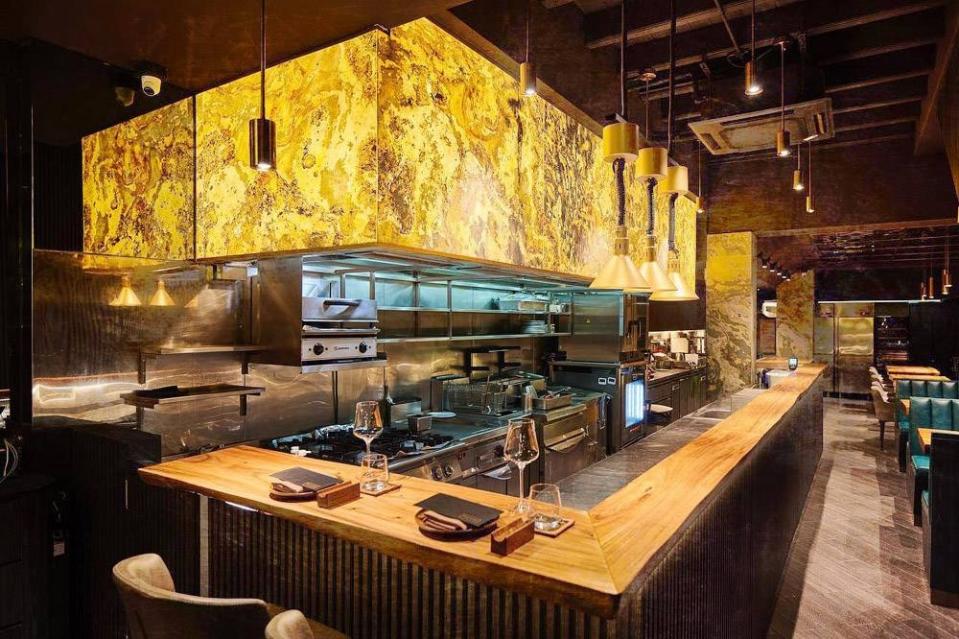
Chef’s Table at the front of the restaurant.
Developing new recipes such as these require some finesse but also thinking outside of the box. Take Thevar’s signature carrot panipuri, for instance.
Chef Mano elaborates, "I wanted to use an ingredient that people would not think twice about and turn it into something amazing. We use dehydrated carrots with spiced buttermilk; it acts as a palate cleanser in between the courses.”
Often when one thinks of Indian cuisine, the first impression is about spices. Yet, as Chef Mano is quick to clarify, spices aren’t necessarily about spiciness or fiery heat but rather, flavours. And spices also go well with sweet endings.
For you must always save room for dessert at an Indian restaurant, and Thevar is no different.
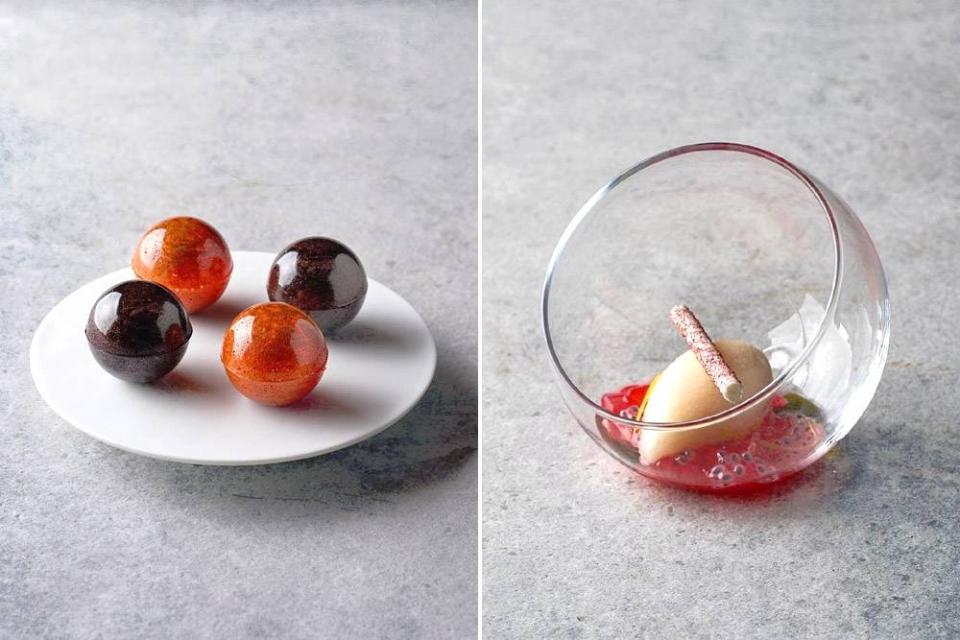
Choose your Pani Puri (left). Soursop & Aloe Vera Falooda (right).
Perhaps their Soursop & Aloe Vera Falooda will lull you with its tangy marriage of sweet basil seeds and velvety ice cream. Or perhaps Thevar’s version of Rasmalai — is there anything more decadent than this reimagining of the classic clotted cream with cardamom?
The menu at Thevar is ever-changing, partly to match the seasons and partly to accommodate Chef Mano’s frequent bursts of new ideas.
The current menu features gems such as the aforementioned Irish Oyster Rassam Granita and Crispy Pork Sambal Aioli, as well as updates to old favourites such as their Chettinad Chicken Roti, this time with duck as the poultry of choice.
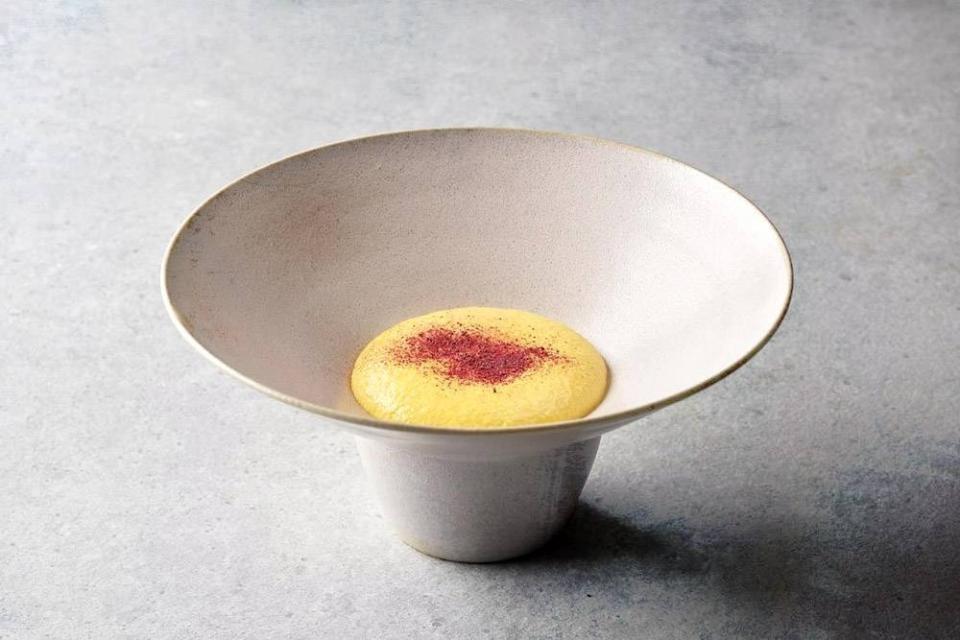
Always save room for dessert: Thevar’s version of Rasmalai.
What doesn’t change is Chef Mano’s insistence on always satisfying the people who made all the difference, particularly during the pandemic.
He says, "We make food that people could enjoy with their whole family. During this time I learnt that our customers really supported us and without our customers' support we would not be where we are today.”
Thevar
9 Keong Saik Road, Singapore
Open Tue-Sat 5:30 pm — late; closed Sun & Mon
Tel: +65-9750 8275
Web: thevar.sg



